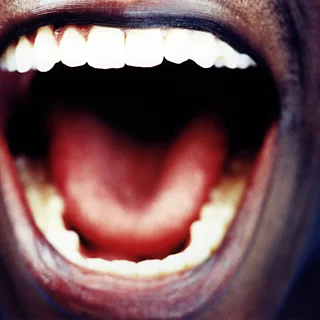THIS Institute needs this information to contact you about our activities. You may unsubscribe from these communications at any time. For information, please review our privacy policy
Putting the mouth back into the body


Dr Kristina Wanyonyi-Kay, research programme leader at THIS joined Claudia Hammond, Professor Nikos Donos from Queen Mary University in London, Dr Graham Lloyd-Jones, consultant in radiology at Salisbury Hospital, and Dr Vivien Shaw, acupuncturist, anatomist and researcher at Hull York Medical School to talk about the evidence that links the health of our mouths with the rest of our bodies. We asked Kristina to tell us more:
Kristina – you trained as a dentist in Kenya, but before you trained to treat dental patients, you trained in internal medicine and general surgery, treating malaria, HIV and other conditions. How do you think that your broad background in medicine has impacted your approach to oral health?
“My training prepared me for what I found when I started to practice. There was a need for a dentist to have a very broad view, as there were many complex cases, and HIV was a real pandemic.
“We believed that up to 60% of the people being treated in hospital could have been immuno-suppressed, which led us to think “what else is going on?” I started to see links between oral health and systemic illnesses all the time.
Your research into oral health in older people revealed some interesting links – can you tell us about those?
“There’s emerging evidence that cognitive decline and oral health might be linked – it makes sense if you think that as cognitive ability begins to decline, it can impact everyday activities such as cleaning teeth, leading to poor oral health too.
“At the same time, there are studies that are beginning to show that it works both ways and poor oral health can actually be an indicator of a decline in cognitive ability, although there haven’t been enough studies yet. Certainly, there could be a link between poor nutrition and oral health problems, and poor nutrition links both to cognitive decline. Also, having fewer teeth in your mouth has already been linked to cognitive decline. The links may be tenuous, but I believe they should be explored.
Another time that oral health and general health impact each other is in pregnancy – why is this?
“Fluctuating hormones in pregnancy can leave women quite vulnerable to bugs, which leave them at risk of premature birth and low-weight babies. We need to provide good dental care in pregnancy – some people say they have never needed dental care until they have children – this is an area we should be thinking about putting more resources.
How does this affect people with no access to dental care?
“This is a group that are suffering and that would benefit the most from resources. People on the margins of society, perhaps dealing with alcohol and substance abuse problems, they could benefit from advice on oral health as part of wider public health programmes.
All oral diseases are preventable, and that’s really powerful.
Listen to Kristina and other panel members debate the role of oral health in overall wellness – and more: